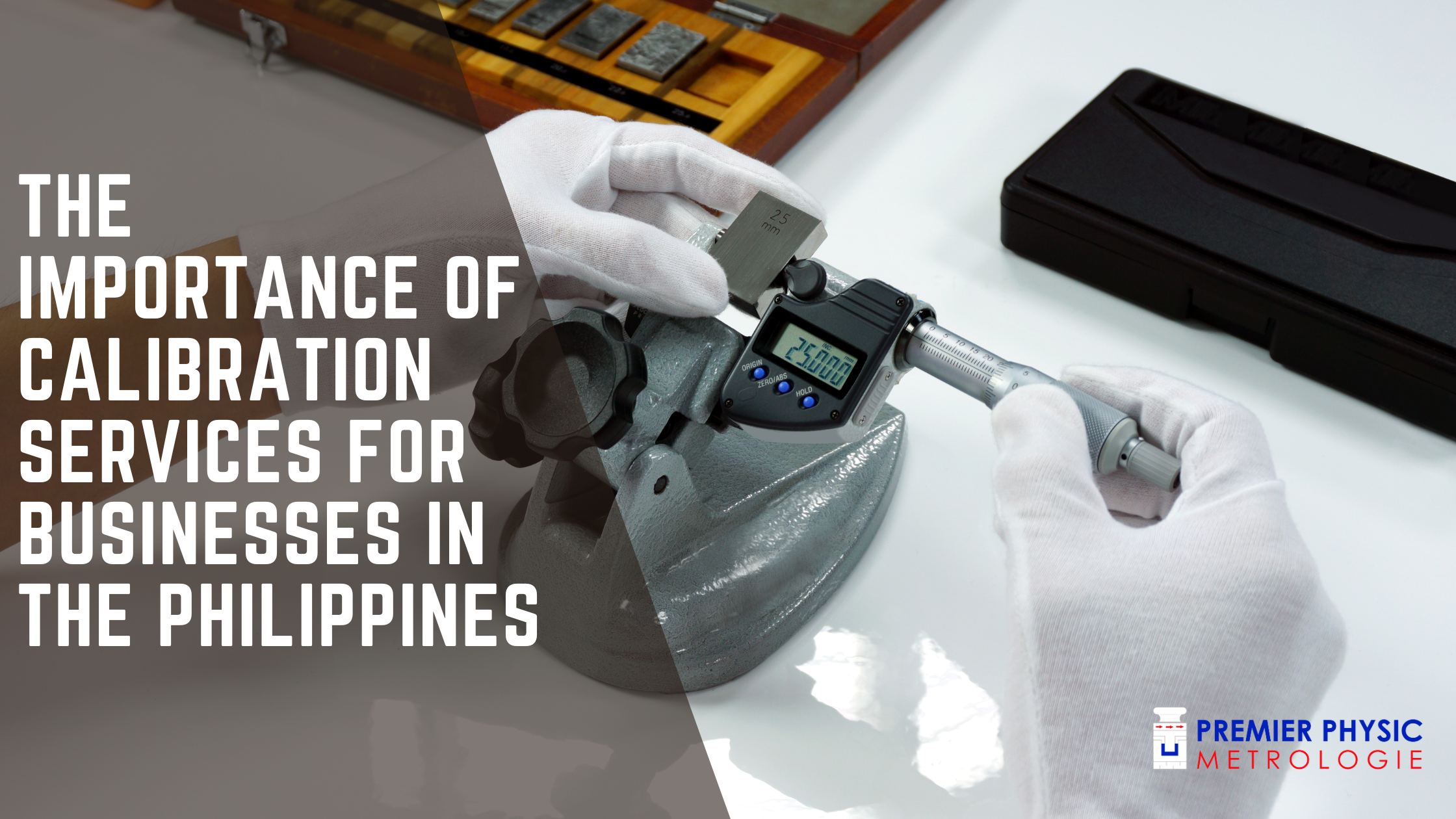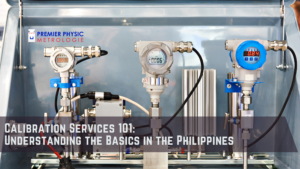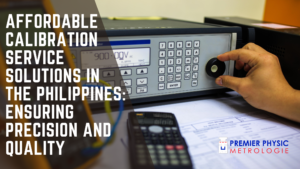Introduction:
In the dynamic and competitive business landscape of the Philippines, accuracy and precision play a pivotal role in determining success. For companies that rely on measurements and precision instruments in their operations, calibration services are not just optional, but an absolute necessity. Calibration ensures that measurement instruments used in various industries are accurate and comply with established standards. This article delves into the vital importance of calibration services for businesses in the Philippines, highlighting its benefits, relevance across industries, and the reasons why it should be a top priority for every company.
The Importance of Calibration Services for Businesses in the Philippines
Calibration services play a paramount role in maintaining the integrity of measurements and instruments used by businesses. Here are some compelling reasons why businesses in the Philippines should prioritize calibration:
Ensuring Measurement Accuracy and Reliability
Calibration is the process of comparing measurements made by an instrument to a known and precise standard. By calibrating instruments regularly, businesses can ensure the accuracy and reliability of their measurements. In industries such as manufacturing, healthcare, and electronics, precise measurements are crucial for product quality and compliance with industry regulations.
Compliance with Industry Standards and Regulations
Different industries in the Philippines are subject to specific standards and regulations that dictate measurement accuracy. Calibration services help businesses adhere to these standards, avoiding potential legal consequences and safeguarding their reputation. Whether it’s ISO 9001, GMP, or other industry-specific certifications, calibration is a fundamental requirement for compliance.
Enhancing Product Quality and Customer Satisfaction
Calibration directly impacts product quality, leading to improved customer satisfaction. When instruments are accurately calibrated, the products they produce are more consistent and meet or exceed customer expectations. This fosters trust and loyalty among customers, giving businesses a competitive edge in the market.
Minimizing Measurement Errors and Costly Mistakes
Inaccurate measurements can lead to costly mistakes, rework, and production delays. Calibration services reduce the risk of measurement errors, saving businesses from unnecessary expenses and ensuring smooth operations. By preventing errors, companies can streamline their processes and optimize efficiency.
Extending the Lifespan of Instruments
Regular calibration not only ensures accurate measurements but also extends the lifespan of instruments. Calibrated instruments are less likely to suffer from wear and tear caused by incorrect usage, resulting in longer-lasting equipment and reduced replacement costs.
Mitigating Risks and Liability
Certain industries, such as healthcare and aviation, involve potential risks to human safety. Calibration of critical instruments in these sectors mitigates risks, prevents accidents, and reduces liability for businesses. It is a proactive approach to safeguarding the well-being of employees, customers, and the general public.
Boosting Credibility and Business Reputation
Businesses that prioritize calibration demonstrate a commitment to excellence and professionalism. Customers and partners are more likely to trust and collaborate with companies that uphold rigorous standards, enhancing their credibility and overall reputation in the market.
Increasing Operational Efficiency
Calibration services not only improve accuracy but also optimize operational efficiency. Well-calibrated instruments lead to streamlined processes, reduced downtime, and enhanced productivity. This efficiency translates to cost savings and increased profitability for businesses.
Fostering Innovation and Research
In research and development (R&D) sectors, calibration is indispensable. Precise measurements are the foundation of scientific experiments and innovation. Calibration services ensure that researchers have confidence in their data, leading to groundbreaking discoveries and advancements in various fields.
Adapting to Technological Advancements
As technology evolves, businesses need to stay current with their equipment. Calibration services facilitate the smooth integration of new technologies into existing operations. Whether it’s upgrading to the latest machinery or incorporating advanced sensors, calibration ensures seamless transitions.
Calibration Services Across Industries
Calibration services are vital across diverse industries in the Philippines. Here’s how calibration impacts specific sectors:
1. Manufacturing Sector
In the manufacturing industry, precision is essential to produce high-quality products consistently. Calibration of measuring instruments used in manufacturing processes ensures accuracy, reducing defects and waste. From calibrating temperature sensors in ovens to gauges in assembly lines, calibration plays a crucial role in maintaining production standards.
2. Healthcare Sector
Hospitals, clinics, and medical laboratories rely on calibrated instruments for accurate diagnoses and treatment. From blood pressure monitors to laboratory analyzers, calibration ensures the reliability of medical results, leading to better patient care and safety.
3. Aviation and Aerospace Industry
In aviation and aerospace, the accuracy of instruments is critical for flight safety. Calibration of altimeters, airspeed indicators, and navigation equipment ensures precise readings, enabling pilots to make informed decisions during flights.
4. Electronics and Semiconductor Manufacturing
The electronics industry demands exact measurements for circuit components and semiconductor devices. Calibration of test equipment used in this sector guarantees the reliability and functionality of electronic products.
5. Oil and Gas Sector
The oil and gas industry rely on accurate measurements for exploration, drilling, and refining processes. Calibrating pressure gauges, flow meters, and other equipment ensures the efficient and safe extraction and processing of natural resources.
6. Food and Beverage Industry
In the food and beverage sector, calibration maintains quality and safety standards. From temperature probes in food processing to scales in packaging, calibration guarantees product consistency and compliance with food safety regulations.
7. Automotive Industry
Automotive manufacturers use calibrated equipment to produce vehicles that meet strict safety and performance standards. Calibration of torque wrenches, fuel injection systems, and emission testing equipment is essential to ensure vehicle reliability and environmental compliance.
8. Pharmaceutical Sector
Pharmaceutical companies rely on calibrated instruments in drug development and production. Calibration of analytical instruments guarantees accurate drug dosages, adhering to pharmaceutical quality standards.
FAQs (Frequently Asked Questions):
Q: Why is calibration necessary for businesses in the Philippines?
Calibration is necessary for businesses in the Philippines because it ensures measurement accuracy, compliance with industry standards, and enhanced product quality. It reduces costly mistakes, extends the lifespan of instruments, and boosts business credibility.
Q: How often should businesses calibrate their instruments?
The frequency of calibration depends on the type of instrument and its intended use. Generally, it is recommended to calibrate instruments annually or semi-annually, but critical equipment may require more frequent calibration.
Q: Can calibration services improve the efficiency of business operations?
Yes, calibration services can significantly improve business efficiency by minimizing errors, reducing downtime, and streamlining processes. This efficiency leads to cost savings and increased productivity.
Q: Are calibration services essential for startups and small businesses?
Yes, calibration services are essential for startups and small businesses as much as they are for larger enterprises. Maintaining accurate measurements and compliance with standards are crucial for any business to succeed and grow.
Q: What happens if a business fails to calibrate its instruments?
If a business fails to calibrate its instruments, it risks producing inaccurate products, violating industry regulations, and facing potential legal consequences. This could lead to a damaged reputation and financial losses.
Q: Can calibration services be outsourced?
Yes, businesses can outsource calibration services to specialized providers. Outsourcing ensures that calibration is performed by experienced professionals using state-of-the-art equipment, providing accurate results and certifications.
Conclusion:
The importance of calibration services for businesses in the Philippines cannot be overstated. From ensuring measurement accuracy and compliance to enhancing product quality and customer satisfaction, calibration plays a fundamental role in various industries. Businesses that prioritize calibration benefit from increased efficiency, reduced risks, and enhanced credibility. As technology advances and competition intensifies, calibration remains a vital aspect of every successful enterprise. Embracing calibration services is not just a wise investment; it is a strategic decision that paves the way for sustainable growth and success in the dynamic business landscape of the Philippines.




